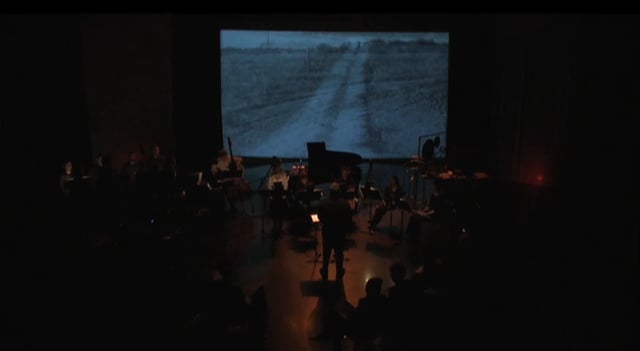I thought talking about living composers not yet featured on NYFOS programs would be enough to minimize the list of people I’d love to include—nope! Not the case. So I will have to let it go for now and pick up the topic another time because without a doubt, there are more composers to be talked about who excel writing for the voice—and thankfully so! Most recently, I’ve had the great joy of working on music by some well established composers but today I wanted to focus on someone relatively new on the scene with a powerfully unique ‘voice’. Lembit Beecher and I went to Rice University together years ago but didn’t really see much of one another. Skip ahead to about a decade later and the crowded but intimate East Coast classical scene and then the even smaller ’new music’ scene within that. Lembit had finished up his studies at Harvard, Rice and University of Michigan and headed to Philadelphia for a three-year residency with Opera Philadelphia. What struck me first about his music was not only the organic, often folklike style but the intense personal feeling in his writing. It feels imperative. It makes sense then that he would be drawn to writing for the voice. It’s not to say that all music in any instrument isn’t personal but the fact that no voice sounds like another is certainly something to be accentuated. There is also of course the incredible gift of text! The first piece of his that I heard (and watched) was And Then I Remember based on WW2 stories of Lembit’s Estonian grandmother Taimi Lepasaar. Here Lembit incorporates something from his family history—a potent, emotional story that’s ‘in his blood.’ In this short clip, I love how immediately one sees the impact ‘music’ makes to ‘word.’ We hear the voice of his grandmother speaking about her memory and then the singer giving those same words new feeling and meaning. The music heightens the emotion as it is so essential to do. Why else do we attend a concert but to have our heart opened?
Then Lembit completed his first full-length opera I have no stories to tell you.Once again, like the composers I mentioned from previous days, writing an opera appeared to be an immediate and natural extension of himself, seemingly unimpeded by the obvious challenges involved. This never ceases to amaze me—the sheer scope of putting together a musical, dramatic, orchestral, narrative, often choral, scenic and emotional world. The clip speaks for itself. As Lembit describes it, the opera “mines the aftereffects of war through the story of a soldier’s return home from an extended assignment on the battlefield.” It comes from the 2014 premiere by Gotham Chamber Opera with libretto by Hannah Moscovitch, conducted by Neal Goren.



0 Comments